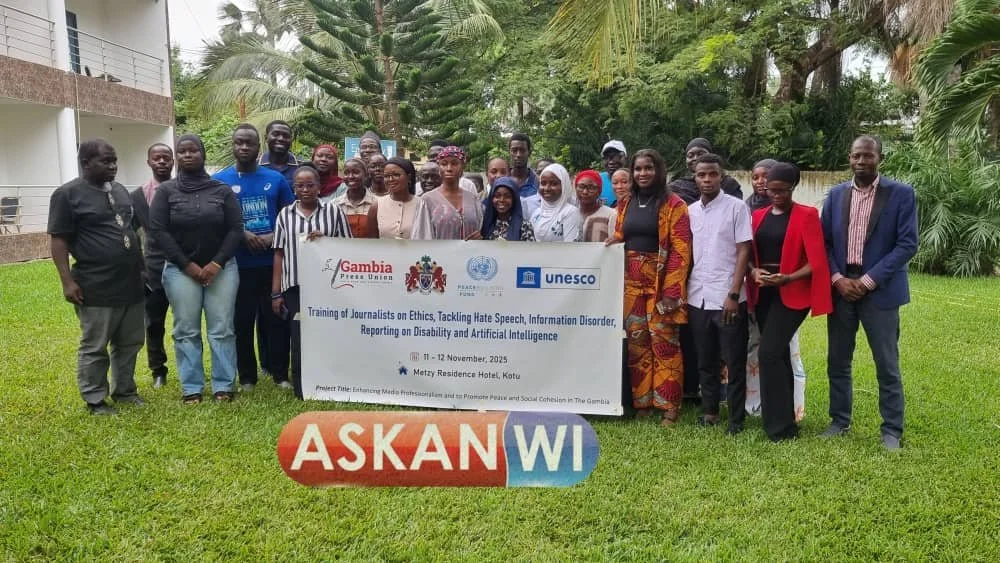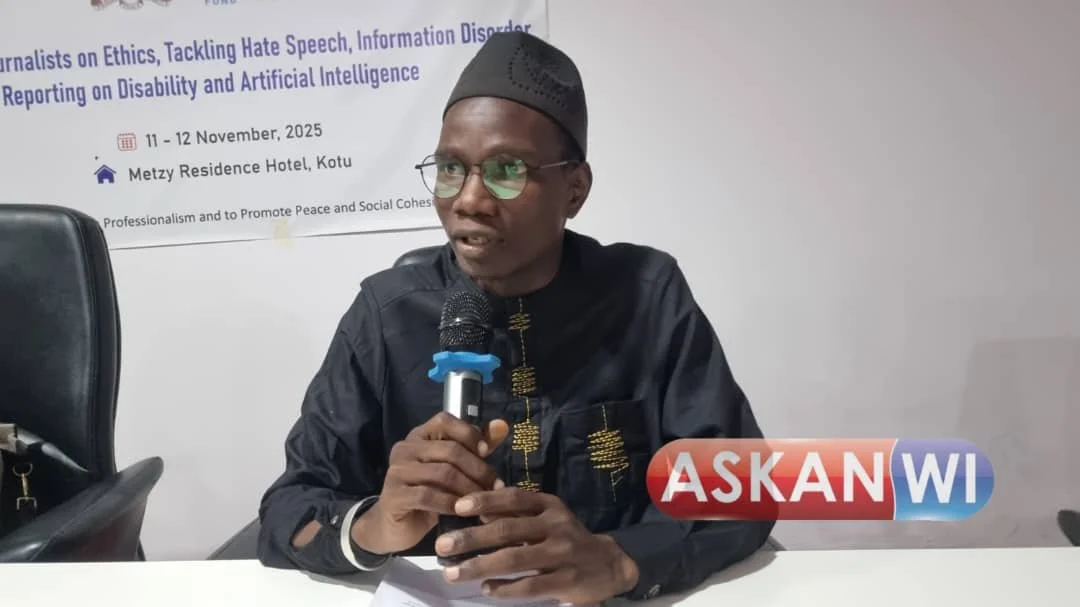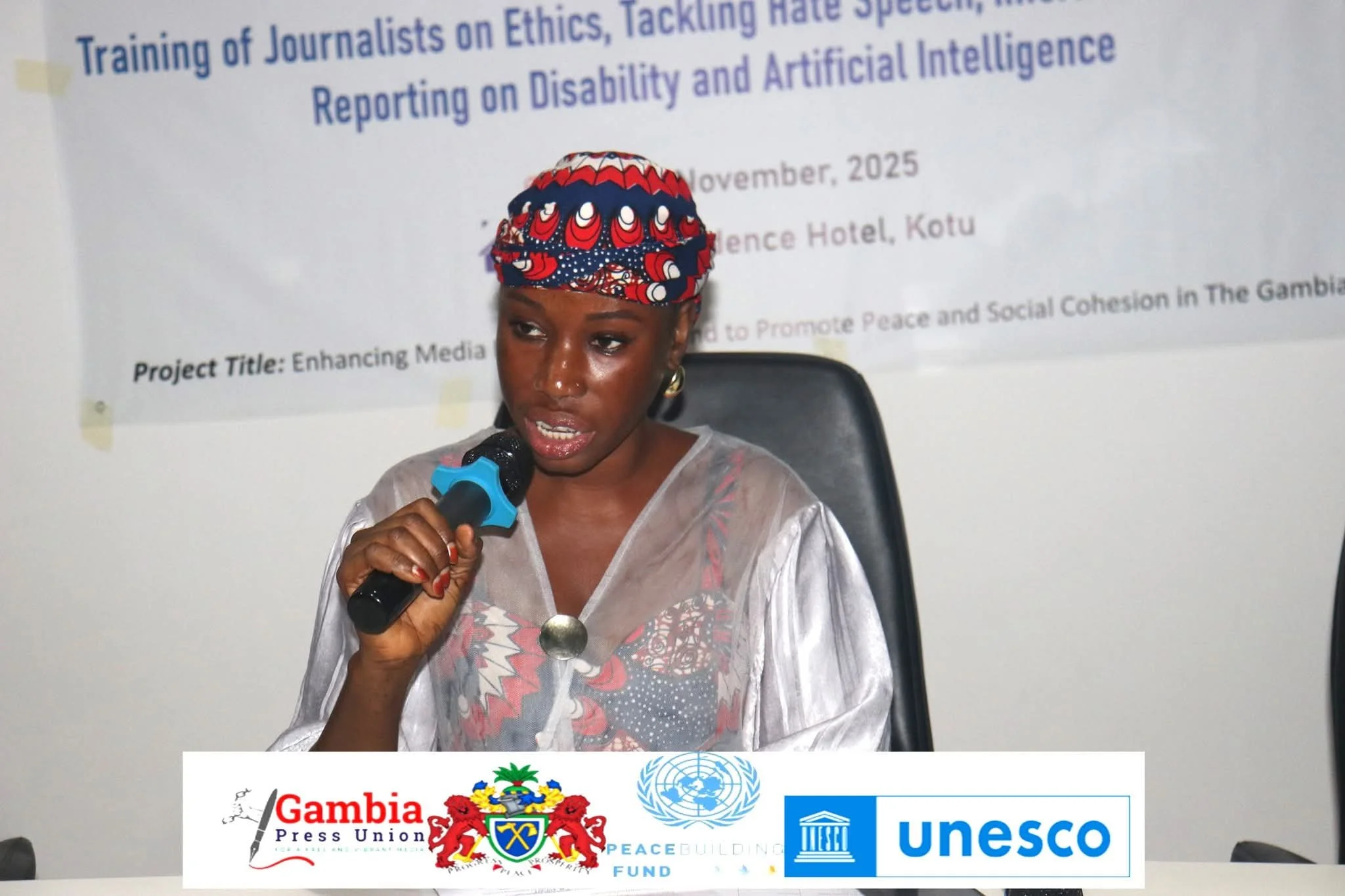“AI Is a Powerful Problem-Solving Tool but Poses Enormous Risks,” GPU Vice President Cautions Journalists
Group Photo of GPU AI Training © Askanwi
By Edward Francis Dalliah
The Vice President of the Gambia Press Union (GPU), Sheriff Saidykhan, has cautioned journalists about the growing risks posed by artificial intelligence (AI), despite its significant potential to improve journalism. He made the remarks on Tuesday, 11th November 2025, at the opening of a two-day training on tackling hate speech, information disorder, reporting on disability and AI, and the four new guiding principles introduced in the revised Cherno Jallow Charter of Ethics for Journalists 2025.
The training, held from 11th to 12th November 2025 at the Metzy Hotel, is part of the GPU’s three-month project, “Enhancing Media Professionalism and Promoting Peace and Social Cohesion in The Gambia.”
Supported by UNESCO Dakar through the UN Peacebuilding Fund’s Infrastructure for Peace (I4P) programme, it is designed to strengthen journalists’ capacity to combat hate speech and information disorder. The project also aims to promote ethical reporting on disability and guide the responsible use of AI in newsrooms.
GPU Vice President Sheriff Saidykhan © Askanwi
Saidykhan noted that “the advent of AI tools has impacted our work, from news writing, production and research,” adding that “when used effectively, these tools can make our work faster and more efficient, from news writing to production and research.” However, he cautioned that “it poses enormous risks”, with one of the risks surfacing recently where doctored images falsely linking public figures such as Mayor Talib Bensouda and MC Cham Jr were published.
On disability reporting, another key focus of the revised ethics charter and the training, Saidykhan stressed that it requires “a higher degree of professionalism” to ensure inclusivity and eliminate harmful stereotypes against persons with disabilities.
NATCOM Programme Officer Fatou Jallow
Speaking on behalf of the National Commission for UNESCO (NATCOM), Programme Officer Fatou Jallow commended the inclusion of disability reporting in the training. She emphasised that the approach ‘aligns with UNESCO’s commitment to ensuring fair, respectful and accurate representation of persons with disabilities in the media.’
Turning to the broader threats of information disorder, she noted that “the spread of hate speech, misinformation, fake news, and unethical reporting practices has posed serious challenges to democratic governance, human rights, and national unity.”
“The media plays a crucial role in shaping public opinion, promoting peace and fostering social cohesion,” Jallow said. “I therefore encourage all participants to take full advantage of this training to strengthen their professional competence and contribute to a more informed, tolerant and cohesive society.”



